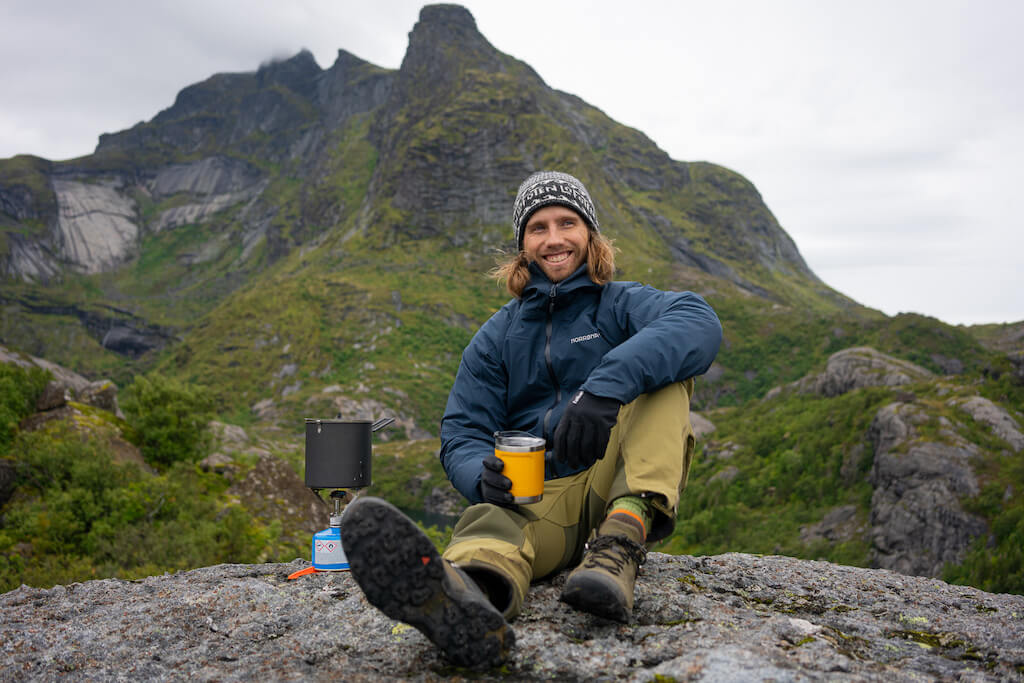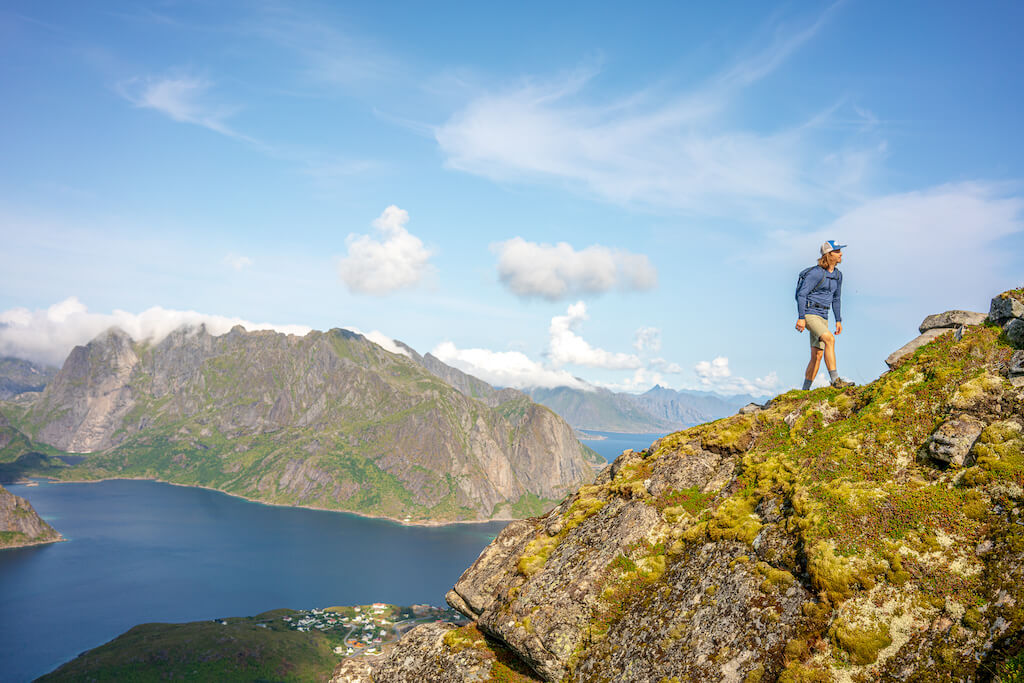Birds have their own entire world within ours—we only need to tap into it. Charles Post, an ecologist, storyteller, and filmmaker, is deeply in touch with the lives and cycles of birds on our planet.
While his interest and know-how spans ecology, Charles has spent a good portion of his life learning about and sharing his knowledge of birds. From creating the film Sky Migrations, which tells the story of one of the planet’s great migrations to snapping photos of local fauna, Charles’ work is a reminder to slow down, find pause, and notice the cycles of nature around us.
We were excited to speak with Charles, and dive deep into the world of birds and what they can teach us.

Photo Credit: Rachel Pohl
What inspired you to be an ecologist? And how did you first get interested in nature, in general?
Growing up in California, my grandmother was an avid birder—she was like a second mom to me, and I spent a ton of time with her living with her. She taught me two things—one, to look up. A lot of people don’t even know there are birds overhead. Second, to move slowly. I would go on walks in the forest behind my house, and learned how to notice things. It’s like a language—you have to learn how to see birds.
Then, when I was studying ecology at UC Berkeley, a professor—Dr. Stephanie Carlson—she showed me pictures of these young grad students working in the field in Alaska. I realized that people get paid to do what I’ve always done, and the interests and curiosity that captivated me as a little boy could be an actual career.
What benefits do you think there are to paying attention to the lives of birds?
Birds bind our world. You have birds that fly through backyards and overhead that cover both hemispheres, twice a year. A bird that stops at your feeder might continue on to a village in the arctic, or head south and end up in a vineyard in Argentina or a backyard in Costa Rica.
When you encounter birds that migrate, you’re encountering these little bundles of feathers and muscle that weigh just a few ounces in some cases, yet they’re covering thousands of miles. They only exist because of communities along the way that have decided that it’s better to have birds in our skies.
On the other side of that coin, in the last 50 years, a quarter of birds have disappeared from North America. Many billions of birds have been lost. For lack of an analogy, birds really are the canary in the coal mine. They’re often small and indiscreet, so you don’t think about the important benefits they provide to the planet, like controlling insects, dispersing seeds, sparking our curiosity and imagination, and even filling spring with song.

What was one of the most impactful or memorable experiences you had with birds?
When I first moved to Montana, I put out nest boxes along the fence line for birds. The first spring I was here, these tree swallows showed up. These birds are absolutely gorgeous—they dance in the wind and are some of the most elegant fliers in the bird world. And, they chose my backyard and moved into my nest boxes.
And every year, at the end of the spring, they turn around and fly back to Central America and do their thing, and then come back. And after three years of spending almost every day that they’re here, I’m with these birds as much as I’m with Rachel, my wife, or my dog.
What’s so special is that you realize how fragile this ancient thing is—migrations. If they fail, they might not make it back next year. Every year I wait for them to arrive. When the first one arrives, it’s like seeing an old friend. You watch them raise their young, survive snowstorms, the heat of July, and the smoke of August. You almost feel like they’re part of the family.
It’s funny. If somebody asked me what I would miss most about Montana, the one thing that makes me sadder than anything is the thought of not seeing those tree swallows again this spring.

Photo Credit: Rachel Pohl
You've moved to Norway—what are the birds like in Norway? Are there any stories going on there that you feel particularly drawn to?
I’ve been so interested in this species of gull—the kittiwake. They’re abundant and exist all across arctic regions of the world, but they’re declining precipitously.
It’s like salmon or bison—they were once so abundant that people would’ve never dreamed of a time when they would disappear. And, people are having a hard time grasping the science which says that the black-legged kittiwake is disappearing across parts of their range. That’s the story that I want to make a film about and spend more time learning about.
They might disappear across parts of Norway in the next 50 years, many believe due to the shifting climate, and ocean conditions in the arctic. There’s a loss of food, or it’s harder to find food because krill and other things they eat are not where they typically are, or perhaps their numbers are such that the kittiwake population can’t be sustained.
How do you find moments of pause in your life?
Beyond birds, I love gardening. I’ve always gardened since I was little. My grandmother was a gardener, and we had a big garden growing up. And then, of course, I love nordic skiing. In the winter, we ski almost every day on our property. Our neighbor has a huge farm that’s hundreds of acres, so we’re able to explore there, which we do most days. Looking back to before I moved to Montana, I grew up surfing, so for most of my life, I have spent a fair bit of time floating in the ocean with birds all around. And I’ll be back on the sea once we get to Norway.

Photo Credit: Rachel Pohl
Do you have any tips for people looking to incorporate birds in their life?
Walking around with a pair of binoculars is a great way to start. Also, there’s a book—The Great Animal Orchestra by Bernie Kraus—that’s a book that I often recommend.
Another great way to get into birding is to garden. When you create a place that is attractive to birds, they will show up. The more colors of flowers you have, the more birds will show up. The greater diversity of plants, the greater diversity of insects, which means more birds will show up.
Besides that—slow down. Hop off your bike. Instead of taking a run, take a walk. Or, instead of taking a walk, just stop and sit down. When I was teaching field biology to undergrads as a graduate student, I’d take my students into a park and have them sit by themselves quietly, listen, and look. Most people have never actually done that before. Once you’ve done that and realize the sound of the forest or desert or coast, you start to notice so much more than before. When you know that nature is out there, you’ll be forever changed, and on the path of being in touch with nature.
What projects are you working on right now? Where is your attention and focus?
In the last two years, I haven’t been traveling as much, but what I’ve been focusing on my consulting business. I’ve taken my background in ecology and my passion for storytelling and creativity and blended that into a consulting business where I work with companies to develop a point of view and strategy around the environment I’ve dubbed “ecosystem marketing.”
Ecosystem marketing is all about how a company positions their voice in a way that’s informed by the environment and allows them to act and communicate through the lens of ecology.
I’m still shooting photos for magazines, writing a bit, and doing some social media work for a few clients, but the consulting work has given me a lot more time to do what I love. I also love the idea of helping big companies change in ways that can scale and affect change in a massive way.
When I was working as a full-time creative, I had to hustle and be on the road hundreds of days a year. Now with this new focus, something that I can do part-time, I can also focus on life, gardening, birding, and getting back into field science—the things that give me purpose and meaning.
Discover more about birds, including this reflection on the beauty of bird watching. Or, explore more interviews with the GOODLAND community, including with Maine-based sculptor and builder Anthony Esteves or Montreal-based artist David Umemoto.



